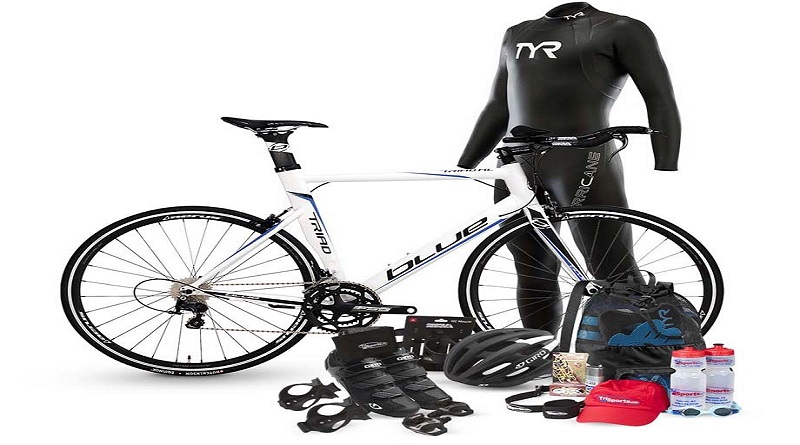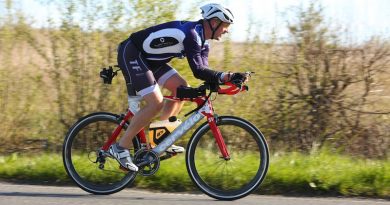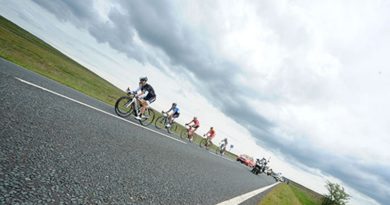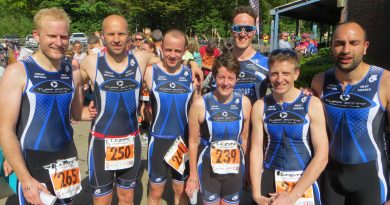Advice for the novice triathlete
Recent article from Triathlete Europe which novices may find useful:
We sought out experts—in training, nutrition, psychology and everything tri—to provide solutions to newbie triathletes’ most common questions.
How many hours per week do I really need to train?
It’s easy to be a bit too eager and overtrain for your first race. “A beginner can realistically train two to four hours per week in preparation for a sprint triathlon,” says LifeSport head coach Lance Watson. If you’re a seasoned athlete in any of the three sports, you can use that base to start out at a higher volume, but, as Watson explains, “Someone completely new to endurance sport will get great benefits with four or five 30- to 45-minute sessions per week.”
Your first workouts
Assuming you have no experience in swim, bike or run, Watson recommends the following training volume to start.
Swim: Two times per week. “Start with very short segments in the pool such as 10–20 x 25 yards and progress to 50s and 100s.”
Bike: One to two times per week. “Most people can bike for 20 to 30 minutes nonstop, so starting there and progressing up to an hour over the course of four to six weeks is a great start.”
Run: One to two times per week. “Brand new runners should start with a walk-run program such as 5x(3 minutes jog/2 minutes walk).”
Do I need a coach?
As someone who is new to the sport, it may feel counter-intuitive to hire a coach because it seems like that is reserved for top-tier athletes. The truth is that, as a beginner, you stand to gain the most from investing in some guidance, especially early on. “Aside from the physical and mental demands, triathlon is a sport of experience,” explains Benjamin Drezek, the 2014 USA Triathlon national coach of the year and founder of KMF Performance Triathlon Club in Denton, Texas. “A knowledgeable coach who has seen it all can guide you away from many of the pitfalls and common mistakes a new athlete can make. A coach will teach you how to navigate the entire training and racing process and work with you to create an initial blueprint for success in all aspects of the sport.”
How do I find the time?
The idea of balancing the swim, bike, run and strength training required to be ready for your first triathlon can be overwhelming. Add to that the fact that all of the current commitments you have in your life—family, job, school, etc.—are not going anywhere, and getting to the start line can feel like an impossible-to-solve puzzle. We reached out to a handful of the best amateur triathletes in the world (all Ironman World Championship age group winners) to find out how they make it all work.
Have a plan.
“Plan ahead for the next training week, set clear targets and decide when you’re going to fit in your sessions. The worst thing is waking up not knowing what your training is for that day and not knowing when you’re going to fit it in.”
– Lucy Charles, (F18–24)
Have clear goals.
“Time management begins by establishing your vision. … Know your strengths and weaknesses, identify the two or three key workouts that will act as the building blocks for each week. … [Once you] know your specific needs and how to address those needs, then lay out your weekly schedule around your building blocks.”
– Greg Taylor, (M60–64)
Get creative.
“Look for and capitalise on opportunity. After dropping off kids at swim practice or piano lessons, squeeze in a run, bring your bike or swim with them. Find or create gaps in your activities that allow for training.”
– Chris Montross, (M55–59)
Get it done early.
“I get up early before work and on the weekends to get the bulk of my daily workout in so that it’s done for the day and I have time to do things after work. You have to prioritise. How bad do you want it?”
– Daniel Stubleski, (M35–39)
Remember this is fun!
“I still think of my workouts as ‘play time.’ It might be hard to get going, especially if it’s a really tough workout, but I do remind myself of how lucky I am to be able to do this sport. When I think of it as ‘play,’ it just naturally rises to the level of the fun thing I get to do, and it’s easier to make time for it.”
– Ellen Hart Pena, (F55–59)
Every little bit counts.
“Something is better than nothing. Twenty minutes in the weight room or half of your swim workout is better than not training.”
– Colleen De Reuck, (F50–54)
What if I can’t afford a coach?
If hiring a coach is too far out of your comfort zone, or if it’s too much of a financial commitment, Drezek recommends these other resources.
- Find training groups.
Many coaches and tri clubs offer free (or low-cost) group workouts, and many of the people there have probably been doing the sport for a while and have plenty of insight. - Learn by attending a triathlon.
“Spectating or volunteering at a local race is an excellent way to see firsthand all that is involved in the sport and the many types of individuals participating,” Drezek says. “You will almost certainly identify with or be inspired by someone racing.” - Visit your local triathlon, running or cycling shop. “This is a great way to meet like-minded athletes, discover local teams and find training partners,” Drezek says.
- Pick up a book (or two).
There are several great books out there that can help guide you, such as The Triathlete’s Training Bible by Joe Friel.
Read more at http://triathlete-europe.




